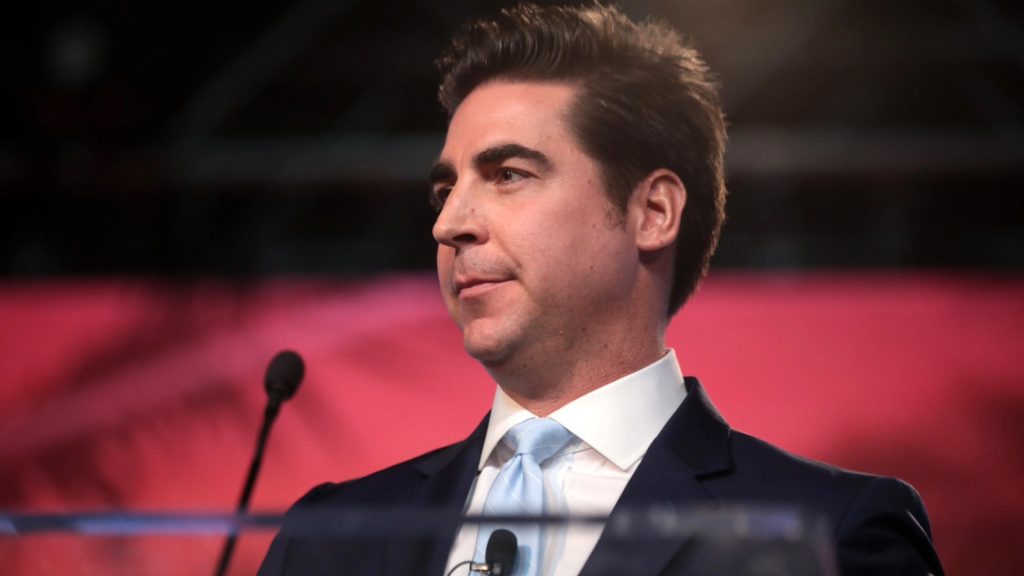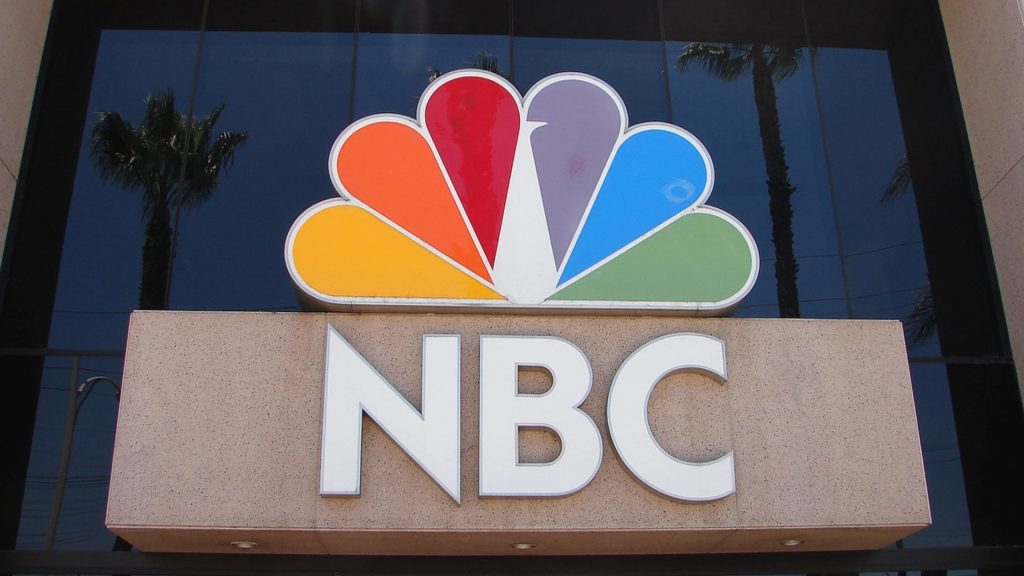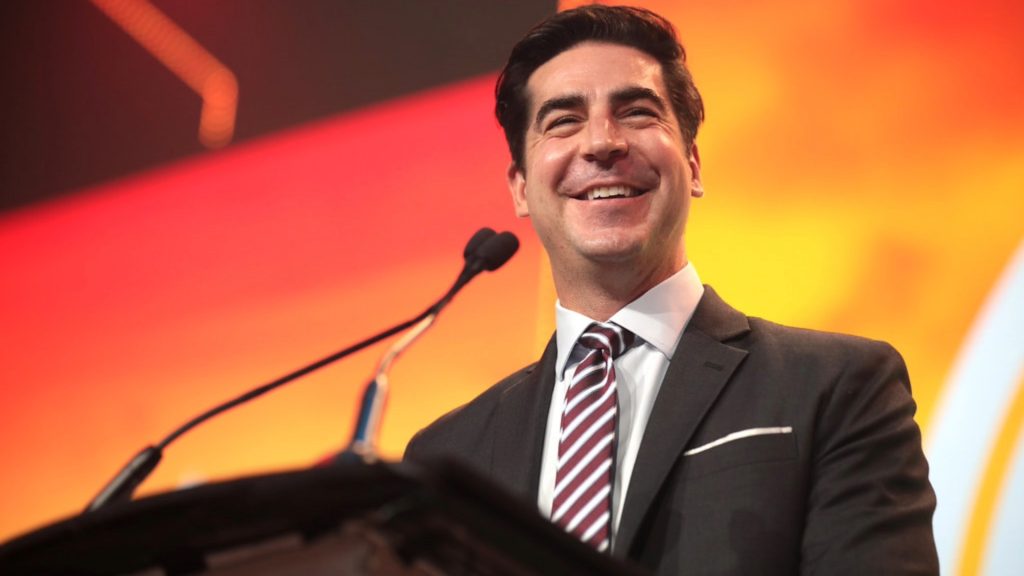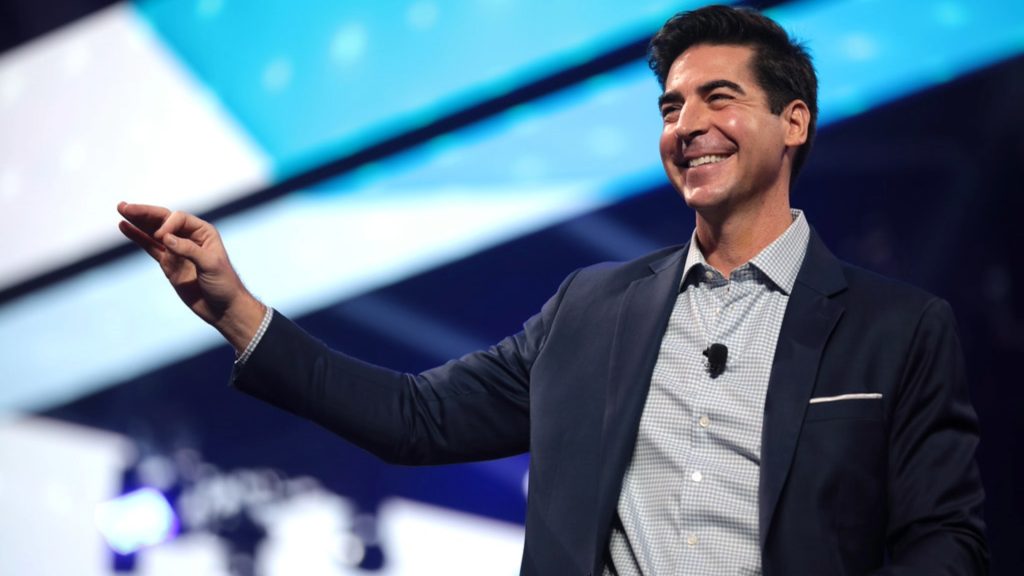In a fiery monologue on ‘The Five’, Fox News host Jesse Watters unleashed a scathing critique of NBC News, accusing the network of hypocrisy and political bias in the wake of their controversial hiring of former RNC chair Ronna McDaniel. Watters’ blistering remarks have set the internet ablaze, sparking a heated debate about media integrity and partisan agendas.
Watters Pulls No Punches in His Blistering Monologue
Jesse Watters held nothing back as he tore into NBC News, boldly declaring that “no one is allowed to represent the voice on NBC.” He accused the network of perpetuating a narrative that painted MAGA Republicans as extremists and insurrectionists who needed to be silenced and prosecuted.

Watters highlighted the glaring contradiction between NBC’s long-standing stance against conservative voices and their sudden decision to hire Ronna McDaniel, a prominent Republican figure. He suggested that this move exposed the network’s true motives and undermined the credibility of their pundits.
NBC’s Leadership Questioned as Watters Exposes Apparent Hypocrisy
With biting sarcasm, Jesse Watters questioned whether NBC’s leadership even believed the narratives peddled by their shows, like ‘Morning Joe’. He implied that the decision to hire McDaniel was a calculated move driven by electoral considerations rather than a genuine commitment to balanced reporting.

Watters painted a picture of NBC as a political entity masquerading as a news organization, suggesting that the network’s actions revealed their true nature. He concluded his monologue with a damning assertion: “NBC is not a business. It is a political operation.”
Internet Erupts in Response to Watters’ Explosive Comments
Jesse Watters’ scathing remarks about NBC News ignited a firestorm on social media, with users across various platforms weighing in on the controversy. The internet was abuzz with reactions, ranging from enthusiastic support to vehement criticism of the Fox News host’s stance.

One user invoked the term “Mockingbird,” alluding to a perceived media manipulation, while another dismissed Watters’ comments as irrelevant. Some users even turned the tables on Watters, accusing Fox News of being a political operation that propagates lies.
The Debate Rages On: Media Bias and Partisan Agendas Under Scrutiny
As the controversy surrounding NBC’s hiring of Ronna McDaniel continues to unfold, Jesse Watters’ monologue has reignited a broader discussion about media bias and the blurring lines between journalism and partisan agendas. The incident has forced viewers to question the integrity of news networks and the motives behind their editorial decisions.

While opinions remain divided, one thing is clear: the debate over media bias and the role of news organizations in shaping public discourse is far from over. As the battle lines are drawn, it remains to be seen how NBC will navigate this controversy and whether Watters’ accusations will have lasting repercussions for the network.
The Fallout Continues: Will NBC Buckle Under Pressure?
In the wake of Jesse Watters’ blistering critique, rumors are swirling that NBC may succumb to internal pressure and cancel Ronna McDaniel’s contract before she even appears on the network. This development has only fueled the fire, lending credence to Watters’ assertion that NBC is more concerned with political posturing than journalistic integrity.

As the situation unfolds, all eyes are on NBC to see how they will respond to the mounting backlash. Will they stand by their decision to hire McDaniel, or will they cave to the demands of their pundits and viewers? The outcome of this controversy could have far-reaching implications for the future of media and the public’s trust in news organizations.
Hypocrisy Exposed: Watters Shines a Light on NBC’s Double Standards
Jesse Watters’ monologue has struck a nerve by exposing what he sees as NBC’s blatant hypocrisy. For years, the network has been vocal in its condemnation of conservative voices, painting them as dangerous extremists unworthy of a platform. Yet, their decision to hire Ronna McDaniel, a prominent Republican figure, flies in the face of their rhetoric.

Watters argues that this sudden reversal reveals the network’s true colors. Rather than being a bastion of journalistic integrity, NBC appears to be more interested in playing political games and maintaining access to power. This hypocrisy has not gone unnoticed by viewers, who are now questioning the credibility of the network’s reporting.
The Power of Social Media: Amplifying the Controversy
As Jesse Watters’ monologue went viral, social media platforms became the battleground for a heated debate over media bias and partisan agendas. Users from all walks of life weighed in on the controversy, with hashtags like #NBCHypocrisy and #WattersExposesNBC trending across various platforms.

The power of social media in amplifying the controversy cannot be understated. Watters’ words resonated with a significant portion of the public, who felt that their concerns about media bias were finally being addressed. The online discourse has put pressure on NBC to respond and has forced a broader conversation about the state of journalism in America.
The Bigger Picture: Media Bias and the Erosion of Trust
The controversy surrounding NBC’s hiring of Ronna McDaniel and Jesse Watters’ subsequent monologue is just the latest example of a growing concern about media bias and the erosion of public trust in news organizations. In an era of heightened political polarization, the lines between journalism and partisan advocacy have become increasingly blurred.

As viewers are bombarded with conflicting narratives and accusations of bias from all sides, it becomes increasingly difficult to discern the truth. The incident at NBC is a microcosm of a larger problem, one that threatens the very foundation of a free and independent press. If news organizations continue to prioritize political agendas over journalistic integrity, the public’s trust in the media may be irreparably damaged.
Watters’ Words Resonate: A Wake-Up Call for the Media
Despite the controversy and criticism surrounding his monologue, there is no denying that Jesse Watters has struck a chord with a significant portion of the American public. His words have given voice to the frustrations and concerns of many who feel that the media has lost its way, becoming more concerned with pushing partisan agendas than reporting the truth.

Watters’ blistering critique of NBC serves as a wake-up call for the media industry as a whole. If news organizations hope to regain the trust of the public, they must take a hard look at their practices and biases. They must recommit themselves to the principles of fair, accurate, and impartial reporting, regardless of political pressure or commercial interests.
The Road Ahead: Restoring Trust and Integrity in Journalism
As the fallout from Jesse Watters’ monologue continues to reverberate through the media landscape, the road ahead for NBC and other news organizations is far from clear. Restoring trust and integrity in journalism will require a concerted effort from all stakeholders, including media executives, journalists, and the public at large.

News organizations must take concrete steps to address the concerns raised by Watters and others, such as implementing stricter editorial standards, fostering a culture of transparency, and encouraging diverse viewpoints. At the same time, the public must remain vigilant and hold the media accountable for their reporting, demanding accuracy, fairness, and impartiality.






